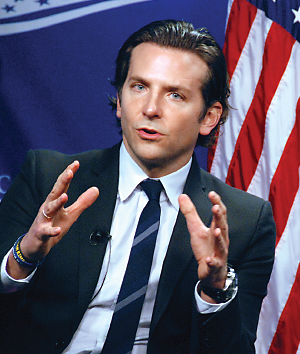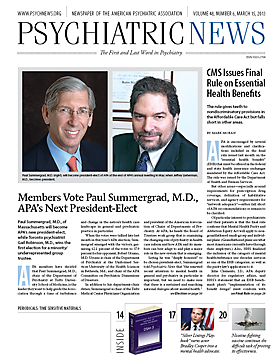Bradley Cooper knows it’s a privilege to be an actor, but it’s a privilege that comes with an obligation.
“I’m very aware of its power,” said Cooper, who plays the lead role as a man with mental illness in the highly praised film “Silver Linings Playbook.”
Cooper’s character lost his house, his job, and his wife; was voluntarily committed to a psychiatric facility; and now is ready to rebuild his life with the help of his family.
The movie is based on a book by Matthew Quick, but draws on director David Russell’s own experiences with a son who has a mental illness, said Cooper.
“Before I made the film, I was ignorant about mental illness,” said the actor at a Washington, D.C., news conference in February. “Now I feel like I can understand what it’s about.”
Cooper spoke at a briefing sponsored by the Center for American Progress, a Washington, D.C., think tank.
Cooper received an Academy Award nomination for best actor, “Silver Linings Playbook” for best picture, Russell for best director, and female lead Jennifer Lawrence for best actress. Lawrence won the award at the February 24 Oscar ceremony.
Despite his disorder and the difficulties it created in his life, Cooper’s character is in some ways luckier than most people with mental illness, said the actor. “He is able to communicate with those around him and has a support system to provide structure.”
Other speakers at the briefing lauded the film’s value in informing the public about what it is like to have or live with someone with a mental illness and in lessening stigma.
“The film gave a fresh face and voice to this issue,” said former member of Congress Patrick Kennedy, cofounder of the brain-research organization One Mind for Research. Kennedy frequently speaks of his own experience with bipolar disorder and alcoholism.
“With mental illness, the ability to galvanize the American public is often missing,” said Kennedy. “I thank Bradley Cooper for giving us some wind in our sails.”
Kennedy and other speakers used the briefing to reiterate the need for the Obama administration to issue long-delayed final regulations implementing the mental health parity law.
“Parity sends a powerful signal that mental health is just as important as physical health,” said Topher Spiro, J.D., director of health policy for the Center for American Progress. “Mental health is just as important as physical health, and the Affordable Care Act [ACA] is a game changer for access to mental health care.”
But to be effective, the health-insurance exchanges created by the ACA must have adequate networks of mental health care providers, said Spiro.
Eventually, the ACA will change a “sick care system” to a true “health care system,” agreed Kennedy.
No one would oppose coverage for cancer or heart disease, and people must demand equal coverage for mental illnesses, he said.
“This is a political issue,” he emphasized. “Opposition to stigma should pave the way for advocacy.”
Some of that advocacy can be stimulated by the mass media, said Cooper.
“If I could do one thing, it would be to raise awareness about mental illness and ask people not to walk away from people with mental illness,” he said. ■

